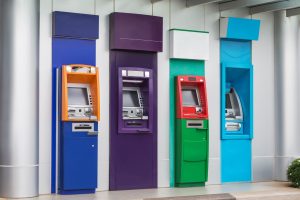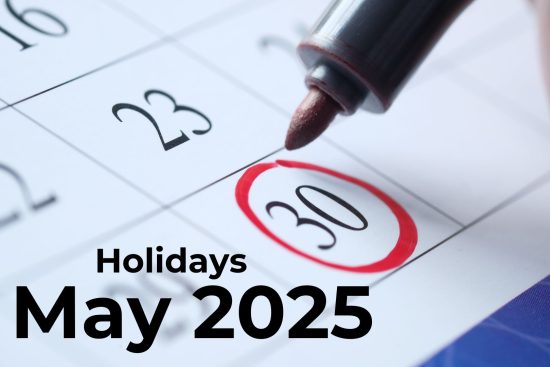Introduction to Thailand Currency
Before we dive into the details, let’s start with a brief introduction to Thailand’s currency. The official currency of Thailand is the Thai baht (THB). The Thai baht is denoted by the symbol ฿ and is divided into 100 satang. Banknotes in circulation come in various denominations, including 20, 50, 100, 500, and 1,000 baht, while coins are available in 1, 2, 5, and 10 baht, as well as 25 and 50 satang. << Thai Street Food | A Culinary Adventure >>Overview of the Thai Baht
The Thailand Currency (Thai baht) has a fascinating history that dates back to the 19th century. It was introduced as the country’s official currency in 1857 during the reign of King Mongkut. Over the years, the Thai baht has undergone several changes, including modifications to its design and security features. Today, the Thai baht is widely accepted throughout the country, and you can easily exchange your foreign currency for baht at banks, exchange booths, and even some hotels.Understanding Thai Baht Conversion Rates
When it comes to understanding the Thai baht conversion rates, it’s essential to know that the exchange rate can fluctuate daily. The value of the Thai baht is influenced by various factors, including global economic conditions, political stability, and the demand for the currency. To get the most accurate and up-to-date conversion rates, it is recommended to check with reliable sources such as banks or reputable currency exchange websites before your trip. It’s also worth noting that exchange rates can vary between different places, such as banks, exchange booths, and hotels. Banks generally offer better rates compared to other options, but they may also charge higher transaction fees. On the other hand, exchange booths and hotels may have slightly less favorable rates but can be more convenient if you need to exchange money outside of regular banking hours.<< What to do in Thailand ? 10 Must-Do Activities >>
Tips for Exchanging Currency in Thailand
Exchanging your currency for Thailand Currency can be a straightforward process if you follow these essential tips. Firstly, it’s crucial to avoid exchanging money at the airport as they often offer less favorable rates. Instead, wait until you reach the city center where you can find banks and exchange booths with better rates. Secondly, be cautious of anyone offering to exchange money on the street. While it may seem convenient, these street exchanges often involve scams, counterfeit money, or unfair rates. Stick to reputable banks, exchange booths, or hotels to ensure a safe and fair transaction. Lastly, always count your money before leaving the exchange counter. Mistakes can happen, and it’s better to address them immediately rather than discovering the discrepancy later. Additionally, keep your exchange receipts in case you need to reconvert your Thai baht back to your home currency.How to Make Money in Thailand?
Popular Exchange Options in Thailand
Thailand offers several exchange options for travelers. The most common and convenient option is to use banks, which can be found in major cities and tourist areas. Banks typically have competitive rates, but they may charge transaction fees. It’s advisable to check with your bank at home if they have any affiliated banks in Thailand to potentially avoid these fees. Exchange booths are another popular option and can be found in shopping malls, tourist areas, and even some hotels. These booths often have longer operating hours than banks, making them more convenient if you need to exchange currency outside regular banking hours. However, keep in mind that exchange booths might have slightly higher rates or additional fees. Hotels also offer currency exchange services, but they usually have less favorable rates compared to banks or exchange booths. Nevertheless, if you’re in a hurry or need a small amount of cash, exchanging money at your hotel can be a convenient option.<< The True Cost of Living in Thailand | Comprehensive Guide >>
Using Credit Cards and ATMs in Thailand
Credit cards and ATMs are widely accepted in Thailand, especially in urban areas and tourist hotspots. Major credit cards like Visa, Mastercard, and American Express are accepted in most establishments, including hotels, restaurants, and shops. However, it’s always a good idea to carry some cash for smaller establishments or places that might not accept cards. ATMs are plentiful in Thailand, and you can withdraw Thai baht using your debit or credit card. However, keep in mind that most ATMs charge a fee for international withdrawals, which can vary depending on your bank. It’s advisable to check with your bank before your trip to understand the fees involved and to inform them of your travel plans to avoid any card issues.
Currency Exchange Scams to Watch Out For
While Thailand is generally a safe country for travelers, it’s essential to be aware of currency exchange scams. One common scam involves individuals offering to exchange money on the street, often at rates that seem too good to be true. These scammers may use counterfeit money or short-change you during the transaction. It’s best to avoid these street exchanges and stick to reputable banks or exchange booths. Another scam to watch out for is the “zero commission” scam. Some exchange booths may advertise zero commission, but they make up for it by offering unfavorable exchange rates. Always compare the rates and fees before making a decision and opt for transparency over seemingly good deals.<< Must Do Things in Phuket 2023 Updated >>
Best Practices for Handling Money in Thailand
To ensure a hassle-free trip, it’s important to follow some best practices for handling money in Thailand. Firstly, notify your bank and credit card companies about your travel plans to avoid any issues with your cards being blocked. It’s also a good idea to carry multiple forms of payment, such as cash, credit cards, and a backup debit card, in case of emergencies or unexpected situations. When carrying cash, it’s advisable to keep it secure by using a money belt or a hidden pouch. Avoid flashing large amounts of money in public, as it may attract unwanted attention. Additionally, be cautious when using ATMs, and cover the keypad when entering your PIN to protect against potential skimming devices.Currency Conversion Apps and Websites
In this digital age, there are numerous currency conversion apps and websites that can help you calculate exchange rates and track your expenses. Some popular options include XE Currency, OANDA Currency Converter, and Currency Converter Plus. These apps provide real-time exchange rates, historical data, and even offline functionality, making them invaluable tools for travelers.What is MRR MLR MOR Rate interest? Updated Details 2023
Conclusion: Mastering Thailand Currency for a Hassle-Free Trip
In conclusion, understanding Thailand currency is essential for a smooth and hassle-free trip. Familiarize yourself with the Thai baht and its conversion rates before your departure. Follow the tips provided for exchanging currency, and be cautious of scams. Finally, make use of credit cards and ATMs but keep some cash on hand for smaller establishments. By following these guidelines and best practices, you’ll be well-prepared to handle money in Thailand and enjoy your trip to the fullest.- Thinking about moving to Thailand? Go visit the property match website and you will find a wide variety of properties for rent or sale in Thailand!
Condos For Rent/Sale
Recent Posts
-
phum
- 21 May 2025
Condo Trends 2025 – Smarter Design for Modern Urban Living
Condo Trends 2025 – Smarter Design for Modern Urban Living In 2025, Thailand’s condominium market is entering a new era…
-
phum
- 19 May 2025
Thai Real Estate Market 2025 Crisis or Opportunity? In-Depth Analysis
Thai Real Estate Market 2025: Crisis or Opportunity? In-Depth Analysis The **Thai real estate market** in 2024-2025 is navigating a…
-
phum
- 21 Apr 2025
May 2025 Holidays Plan Your Perfect Getaway!
Red Calendar Alert! Deep Dive into "May 2025 Holidays" - Plan Your Perfect Getaway! It's almost here! May 2025, the…
-
phum
- 04 Apr 2025
Golden Location Condos in Bangkok
Golden Location Condos in Bangkok Remain Attractive: Drawing in Foreigners and Investors ️ In recent years, the real estate market…
-
phum
- 25 Feb 2025
Condo Bangkok 2025 Prime Locations and Attractive Prices for Every Lifestyle
Condo Bangkok 2025: Prime Locations and Attractive Prices for Every Lifestyle Bangkok, the vibrant capital of Thailand, remains a top…
-
phum
- 19 Feb 2025
Investable Condominiums in Bangkok 2025
Investment-Worthy Condos in Bangkok 2025: Exploring Locations and Investment OpportunitiesInvesting in **investment-worthy condos in Bangkok** for 2025 is capturing the…






